27-08-2018
Gut flora: the secrets of living to 100 - finally revealed
 In the race against ageing, it represents an unprecedented advance. A battle won in the age-old war of Man against Mortality. We already knew that antioxidants were invaluable for reducing cellular ageing and preventing degenerative diseases. Now, a study1 has revealed that intestinal bacteria – particularly certain types – also play a key role in longevity.
In the race against ageing, it represents an unprecedented advance. A battle won in the age-old war of Man against Mortality. We already knew that antioxidants were invaluable for reducing cellular ageing and preventing degenerative diseases. Now, a study1 has revealed that intestinal bacteria – particularly certain types – also play a key role in longevity.
Scientists analysed the gut microbiota of a number of different populations: adults (aged 22-48), older people (65-75), centenarians (99-104) and supercentenarians (105-109). The results were astonishing.
First they found that the older we get, the more our symbiotic, beneficial bacteria diminish in favour of unhealthy bacteria.
They then discovered that this change was not apparent in the supercentenarians. In this group of exceptionally long-lived individuals, they found significant levels of bacteria undoubtedly associated with an iron constitution. The three species in question were:
- Akkermansia muciniphila
Until recently, this mucin-degrading bacterium was completely unknown. However, since it was shown a few months ago to have a direct association with excellent metabolic status, it has become the focus of considerable interest2. More recently, scientists have highlighted its probiotic qualities : levels of Akkermansia muciniphila were found to be inversely correlated with inflammatory markers, lipid synthesis, several markers of diabetes, risk of cardiovascular disease and fatty tissue in general. The researchers concluded that this species of bacteria maintained healthy metabolism, and prevented weight gain and development of fatty tissue3, 4. The bacteria were subsequently given to people with very low levels. Unsurprisingly, the results matched expectations, producing decreases in inflammation and lipid markers, and improvements in blood sugar levels5, 8. You are probably wondering where you can buy this probiotic. Unfortunately, despite the fact that levels of these highly beneficial bacteria are known to decline with age, the European Food Safety Authority (EFSA) has not yet assessed the safety of these new biological agents – a necessary step before they can be authorised for sale. Rest assured, however, that you will be the first to know when they do become available to the public. In the meantime, a study has shown that a diet rich in omega-3 increases levels of Akkermansia muciniphila in the gut7.
- Christensenellaceae
Here again, researchers were surprised to find this species of bacteria present in the supercentenarians. It had hitherto been primarily associated with physical activity. Basically, scientists had demonstrated that the more you exercise, the greater your chances of increasing levels of these bacteria in your gut flora9.
 The discovery of these microorganisms in individuals with extreme longevity would therefore appear to support the precept that physical exercise is essential for prolonging life expectancy. The mechanisms involved are well-established – primarily through preventing the oxidative stress which leads to ageing. The presence of these bacteria in supercentenarians therefore seems logical. In reality, the picture is somewhat more complicated and this is where it gets interesting. It seems that these bacteria, which confer a number of health benefits (in particular, reducing obesity and protecting kidney function), are highly heritable. In other words, they are passed down from one generation to the next via the mother. If these bacteria play a role in longevity, it thus seems those who inherit them at birth are predisposed to live longer. This could explain why some families tend to enjoy longer lifespans – like that of Jeanne Calment, for example, who lived to 122 10.
The discovery of these microorganisms in individuals with extreme longevity would therefore appear to support the precept that physical exercise is essential for prolonging life expectancy. The mechanisms involved are well-established – primarily through preventing the oxidative stress which leads to ageing. The presence of these bacteria in supercentenarians therefore seems logical. In reality, the picture is somewhat more complicated and this is where it gets interesting. It seems that these bacteria, which confer a number of health benefits (in particular, reducing obesity and protecting kidney function), are highly heritable. In other words, they are passed down from one generation to the next via the mother. If these bacteria play a role in longevity, it thus seems those who inherit them at birth are predisposed to live longer. This could explain why some families tend to enjoy longer lifespans – like that of Jeanne Calment, for example, who lived to 122 10.
- Bifidobacterium
Bifidobacteria belong to a group called lactic acid bacteria which are well-known to the scientific community. Their efficacy against a number of health issues such as diarrhoea, constipation, eczema and irritable bowel syndrome is long-established. However, in the last few years, scientists have revealed the exceptional potential of these probiotics for the body as a whole. In 2015, bifidobacteria were shown to have anti-tumour effects in rats11: oral administration alone produced improvements in tumour control. Five years earlier, another research team had for the first time demonstrated in mice the link between bifidobacteria and a delay in the ageing process, a decrease in pro-inflammatory cytokines and in particular, an increase in antioxidant activity (ie, anti-ageing activity) having been observed following administration of the probiotics12. The same effects have since been seen in older people13.
There is now experimental and clinical proof that interaction between these probiotics (associated here for the first time with extreme longevity) and the immune system does more than just protect the body against common infections: it stimulates production of various antibodies in humans and mitigates the ageing process14-16.
Achieving ‘supercentenarian’ gut flora is not so difficult
How exactly have supercentenarians succeeded in cultivating and maintaining this gut flora? Are they simply born with it and manage to preserve it throughout their whole lives? Have they led a lifestyle conducive to sustaining such microbiota (regular exercise, adequate nutrition)? The answer is :probably both.For those who may not have had the good fortune to come from a family with a tradition of longevity, making the right lifestyle choices takes on huge importance in terms of improving life expectancy, even if chance will always be a factor. There is, however, a third way of achieving this clever blend of microbiota. A third way that does not supplant the second - equally essential - approach, but which enables you to maximise your chances: dietary supplementation. While the Akkermansia muciniphila and Christensenellaceae bacteria may not yet be authorised for sale, Bifidobacterium type probiotics are available to help protect your gut from many age-related diseases and support you as far into the future as possible.
Freeze-dried, the bacteria are available for purchase in a dormant, dehydrated form which become reactivated on contact with the body. Gastro-resistant encapsulation helps ensure their survival during transit so they arrive in the gut ready for long-term activity.
Delaying ageing and prolonging life expectancy: two attainable dreams
 In 1992, a famous demographer estimated that average lifespan could reach 150 years by 2050. In reality, such an increase could only be realised if huge medical advances (particularly in the field of telomeres) were achieved and instantly disseminated across society with immediate effects on individuals – a highly unlikely scenario. Based on logic then, this prediction seems something of an exaggeration. Nevertheless, some less-than-scrupulous laboratories are prepared to promise the impossible to those seeking to turn back the clock and avoid their date with death.
They are prepared to sell them ‘miracle products’ at inflated prices. But make no mistake : such magic bullets do not currently exist. Products are available, however, that can help slow down the ageing process, maximise life expectancy, and above all, increase ‘healthspan’ (for what is the point in living to a ripe old age if you can’t enjoy it?). Studies conducted on the town of Loma Linda, and on the islands of Okinawa and Sardinia, three places traditionally associated with long life expectancy, have demonstrated the importance of certain factors that influence longevity (social interaction, a vegetarian diet, physical activity, calorie restriction, polyphenols, whole grains…). This recent study on supercentenarians has revealed the potential of probiotics. What will scientists discover next?
When asked the secret of her astonishing longevity at the start of her 120th year, the former elder Jeanne Calment said, “I dismissed the bad times. I choose, I don’t suffer.”17. And you, have you chosen to suffer?
In 1992, a famous demographer estimated that average lifespan could reach 150 years by 2050. In reality, such an increase could only be realised if huge medical advances (particularly in the field of telomeres) were achieved and instantly disseminated across society with immediate effects on individuals – a highly unlikely scenario. Based on logic then, this prediction seems something of an exaggeration. Nevertheless, some less-than-scrupulous laboratories are prepared to promise the impossible to those seeking to turn back the clock and avoid their date with death.
They are prepared to sell them ‘miracle products’ at inflated prices. But make no mistake : such magic bullets do not currently exist. Products are available, however, that can help slow down the ageing process, maximise life expectancy, and above all, increase ‘healthspan’ (for what is the point in living to a ripe old age if you can’t enjoy it?). Studies conducted on the town of Loma Linda, and on the islands of Okinawa and Sardinia, three places traditionally associated with long life expectancy, have demonstrated the importance of certain factors that influence longevity (social interaction, a vegetarian diet, physical activity, calorie restriction, polyphenols, whole grains…). This recent study on supercentenarians has revealed the potential of probiotics. What will scientists discover next?
When asked the secret of her astonishing longevity at the start of her 120th year, the former elder Jeanne Calment said, “I dismissed the bad times. I choose, I don’t suffer.”17. And you, have you chosen to suffer?
References
1. Biagi E, Franceschi C et al. Gut Microbiota and Extreme Longevity. Curr Biol. 2016 Jun 6;26(11):1480-5. doi: 10.1016/j.cub.2016.04.016.
2. Dao MC, Everard A & al. Akkermansia muciniphila and improved metabolic health during a dietary intervention in obesity: relationship with gut microbiome richness and ecology. Gut. 2016 Mar;65(3):426-36. doi: 10.1136/gutjnl-2014-308778.
3. Everard A. et al. Cross-talk between Akkermansia muciniphila and intestinal epithelium controls diet-induced obesity. Proc Natl Acad Sci USA 110, 9066–9071, doi: (2013).
4. Shin N. R. et al. An increase in the Akkermansia spp. population induced by metformin treatment improves glucose homeostasis in diet-induced obese mice. Gut 63, 727–735, doi: (2014).10.1136/gutjnl-2012-303839
5. Collado M. C., Derrien M., Isolauri E., de Vos W. M. & Salminen S. Intestinal integrity and Akkermansia muciniphila, a mucin-degrading member of the intestinal microbiota present in infants, adults, and the elderly. Appl Environ Microbiol 73, 7767–7770, doi: (2007).10.1128/AEM.01477-07
6. Gomez-Gallego C, Pohl S. & al. Akkermansia muciniphila: a novel functional microbe with probiotic properties. Benef Microbes. 2016 Jun 13:1-14.
7. Caesar R., Tremaroli V., Kovatcheva-Datchary P., Cani P. D. & Backhed F. Crosstalk between Gut Microbiota and Dietary Lipids Aggravates WAT Inflammation through TLR Signaling. Cell Metab, doi: (2015).10.1016/j.cmet.2015.07.026
8. Schneeberger M, Everard A & al. Akkermansia muciniphila inversely correlates with the onset of inflammation, altered adipose tissue metabolism and metabolic disorders during obesity in mice. Sci Rep. 2015 Nov 13;5:16643. doi: 10.1038/srep16643.
9. Tzu-Wen Liu, Young-Min Parl et al. Physical Activity Differentially Affects the Cecal Microbiota of Ovariectomized Female Rats Selectively Bred for High and Low Aerobic Capacity. PLoS One. 2015; 10(8): e0136150.
10. Étienne-Émile Baulieu, La quête de la jouvence, Les Tribunes de la santé, 2006/4 (no 13), Pages 120, DOI : 10.3917/seve.013.0069
11. Sivan A, Corrales L et al. Commensal Bifidobacterium promotes antitumor immunity and facilitates anti-PD-L1 efficacy. Science. 2015 Nov 27;350(6264):1084-9. doi: 10.1126/science.aac4255. Epub 2015 Nov 5.
12. Fu YR, Yi ZJ et al. Effects of Bifidobacterium bifidum on adaptive immune senescence in aging mice. Microbiol Immunol. 2010 Oct;54(10):578-83. doi: 10.1111/j.1348-0421.2010.00255.x.
13. Akatsu H, Iwabuchi N et al. Clinical effects of probiotic Bifidobacterium longum BB536 on immune function and intestinal microbiota in elderly patients receiving enteral tube feeding. JPEN J Parenter Enteral Nutr. 2013 Sep;37(5):631-40. doi: 10.1177/0148607112467819. Epub 2012 Nov 27.
14. Arunachalam K, Gill HS, Chandra RK. Enhancement of natural immune function by dietary consumption of Bifidobacterium lactis (HN019).Eur J Clin Nutr. 2000 Mar;54(3):263-7.
15. Meydani SN, Ha WK. Immunologic effects of yogurt.Am J Clin Nutr. 2000 Apr;71(4):861-72.
16. Sheih YH, Chiang BL, et al. Systemic immunity-enhancing effects in healthy subjects following dietary consumption of the lactic acid bacterium Lactobacillus rhamnosus HN001.J Am Coll Nutr. 2001 Apr;20(2 Suppl):149-56.
17. Martine Lani-Bayle LES CHEMINS DE LA MÉMOIRE, Martin Média, « Le Journal des psychologues » 2012/4 n° 297, pages 33- 37.
Order the nutrients mentioned in this article
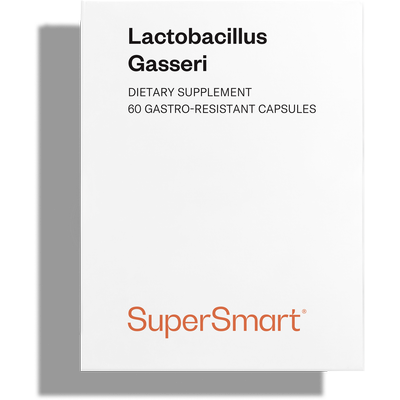
A probiotic strain that’s particularly effective for weight control
www.supersmart.com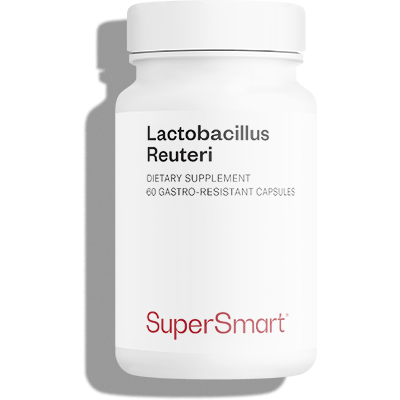
A new-generation probiotic that supports cardiovascular health
www.supersmart.com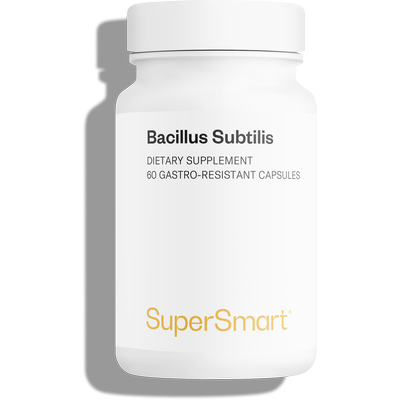
Probiotic bacteria strain with confirmed immunostimulant capacity
www.supersmart.com
Probiotic mix; 8 billion microorganisms per capsule. In gastro-resistant capsules for optimum efficacy
www.supersmart.com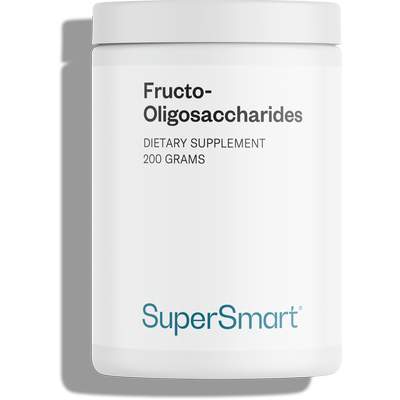
Bifido-active fibre. Improves intestinal health and boosts the body's own natural defences
www.supersmart.com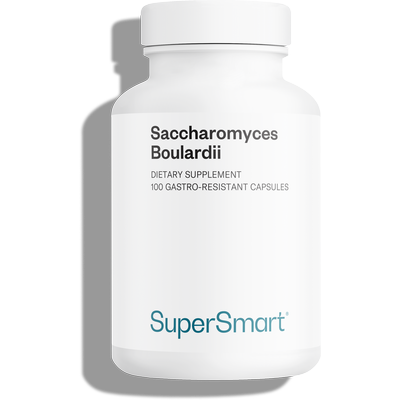
Standardised 2 x 1010 CFU/g. Probiotic used for decades for treating diarrhoea
www.supersmart.com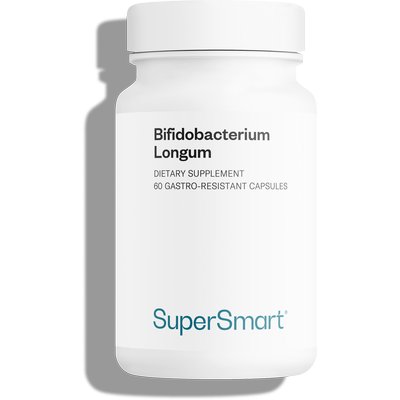
Now in gastro-resistant capsules. New acid-resistant delivery method. One of the most important microbacteria for intestinal health.
www.supersmart.comFurther reading
19-09-2016
The results of clinical research published over the last fifteen years highlight the many beneficial effects of probiotics. They appear to have both preventive and...
Read more14-03-2017
Allergies affect between 30% and 40% of the world’s population. They have multiple causes and take various forms such as food allergies, allergic rhinitis, asthma,...
Read more20-02-2017
Recent research could improve our understanding of the origins of Crohn’s disease, a rare and highly complex condition characterised by chronic inflammation of the intestines....
Read more© 1997-2025 Fondation pour le Libre Choix
All rights reserved
All rights reserved
Free
Thank you for visiting our site. Before you go
REGISTER WITHClub SuperSmart
And take advantage
of exclusive benefits:
of exclusive benefits:
- Free: our weekly science-based newsletter "Nutranews"
- Special offers for club members only


















